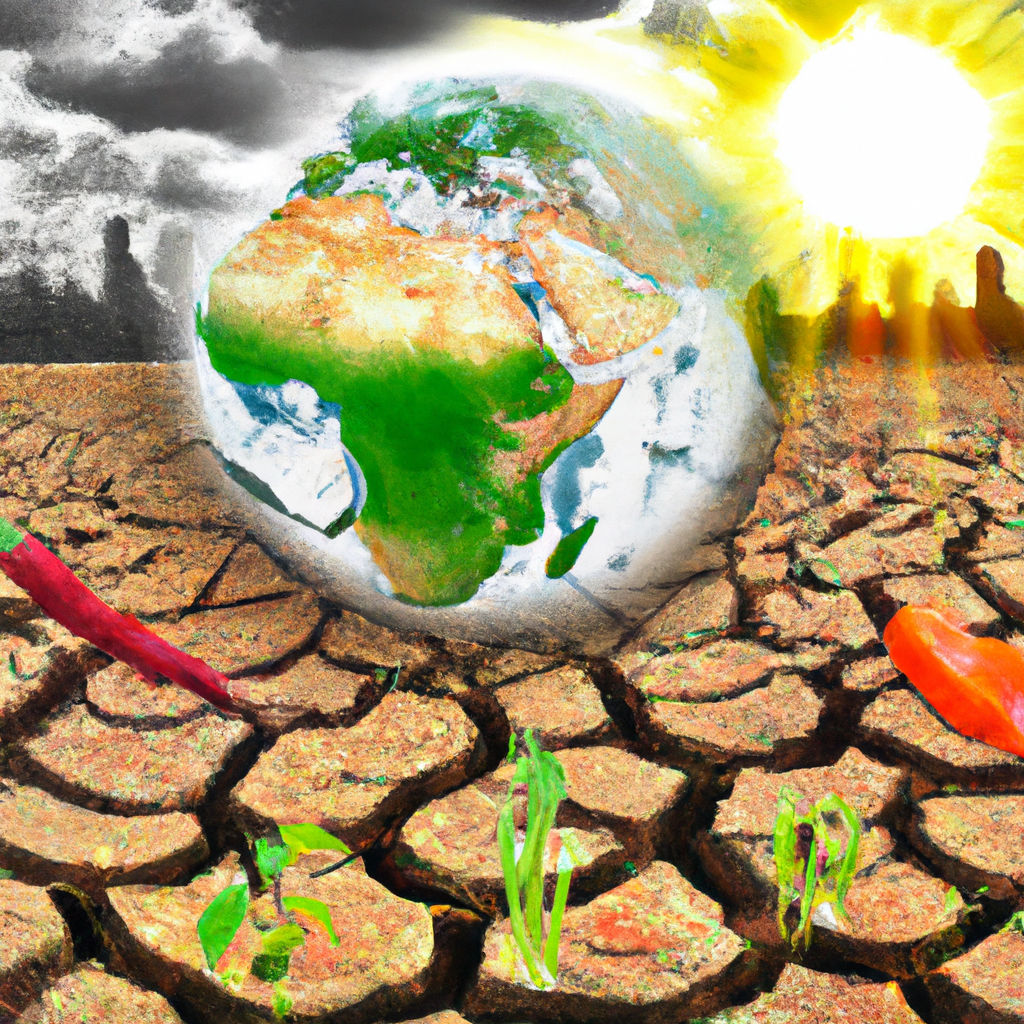
Examining Climate Change’s Agricultural Impacts ===
Climate change is one of the most pressing global challenges of our time, and its effects are already being felt in various sectors, including agriculture. As the global population continues to grow, the pressure on food production will increase. However, climate change has made farming increasingly challenging, with extreme weather events, rising temperatures, and changing rainfall patterns having significant impacts on crop yields, food security, and livelihoods. In response to these challenges, the concept of climate-smart agriculture (CSA) has emerged as a way to promote sustainable agriculture practices that mitigate and adapt to climate change, while increasing productivity and improving food security.
MODULE 1: Why Climate-smart agriculture, forestry and fisheries
Climate-smart agriculture is an integrated approach that combines three main pillars: increasing productivity and incomes, enhancing resilience, and reducing greenhouse gas emissions. This module provides an overview of the key messages and the importance of climate-smart agriculture, forestry, and fisheries. It highlights the need to increase systemic efficiency and resilience through policies, institutions, and finances. The module also examines what’s new with CSA and concludes by focusing on the sourcebook’s goals.
MODULE 2: Managing landscapes for Climate-smart agricultural systems
This module focuses on the importance of a landscape approach for achieving climate-smart agriculture. It examines several examples of landscape approaches and how they can be implemented. The module also discusses the challenges of implementing a landscape approach and the need to focus on enhancing resilience, reducing greenhouse gas emissions, and increasing productivity.
MODULE 3: Water management
Water management is critical for agriculture, and this module provides an overview of the status and trends of water management in agriculture. It examines the potential impacts of climate change on water in agriculture, vulnerability to climate change and resilience, and options for adaptation to climate change. The module also focuses on prioritizing options with an eye on vulnerable categories of people and the conditions for successful adaptation, as well as water management for climate change mitigation.
MODULE 4: Soils and their management for Climate-smart agriculture
Soils are essential for agriculture, and this module examines the principles of soil health, key functions, and the interrelations between soil, plant, and water. It examines the challenges of climate change to soils and the principles for climate change adaptation and mitigation. The module also highlights successful examples of soil management practices for climate-smart agriculture with a focus on resilience.
MODULE 5: Sound Management of Energy for Climate-smart agriculture
This module examines the importance of sound management of energy for climate-smart agriculture. It discusses the energy-smart food in the CSA context and possible energy solutions for CSA. The module concludes by highlighting the importance of energy efficiency and renewable energy sources for climate-smart agriculture.
MODULE 6: Conservation and sustainable use of genetic resources for food and agriculture
This module focuses on the importance of genetic resources for food and agriculture. It examines the prerequisites for climate-smart agriculture and concludes by emphasizing the need to conserve and sustainably use genetic resources for food and agriculture.
MODULE 7: Climate-smart crop production system
Climate change has significant impacts on crop production, and this module examines the climate change impacts on crop production and sustainable crop production intensification. It also discusses underlying principles, climate-smart approaches and practices, and the management of natural biological processes.
MODULE 8: Climate-smart Livestock
Livestock farming is important for food security, but it is also a significant source of greenhouse gas emissions. This module focuses on the need for adaptation and mitigation in livestock farming, climate-smart livestock, and concludes by emphasizing the importance of reducing the carbon footprint of livestock farming.
MODULE 9: Climate-smart forestry
Forestry is an essential part of our ecosystem, and this module examines the importance of climate-smart forestry. It highlights the need for sustainable forest management practices that mitigate and adapt to climate change, while increasing productivity and improving food security.
MODULE 10: Climate-smart fisheries and aquaculture
Fisheries and aquaculture are crucial for food security, but they are also vulnerable to climate change. This module focuses on climate-smart approaches and practical themes for developing climate-smart fisheries and aquaculture. It also highlights the strategic climate-smart approaches for the sector and the progress made towards CSA.
MODULE 11: Developing sustainable and inclusive food value chains for Climate-smart agriculture
Developing sustainable and inclusive food value chains is essential for achieving climate-smart agriculture. This module examines the importance of sustainable and inclusive food value chains and provides a step-by-step approach for chain actors to improve their performance along the sustainable and inclusive food value chain.
MODULE 12: Local institutions
This module focuses on the importance of local institutions for CSA initiatives. It examines the key institutions for CSA initiatives and the need to build synergies. The module also provides a quick institutional context assessment and concludes by emphasizing the importance of strong and effective institutions for achieving climate-smart agriculture.
Examining Climate Change’s Agricultural Impacts ===
Climate change has significant impacts on agriculture, and its effects are already being felt. However, climate-smart agriculture provides a framework for promoting sustainable agriculture practices that mitigate and adapt to climate change, while increasing productivity and improving food security. The sourcebook’s modules provide valuable insights into the importance of climate-smart agriculture, forestry, and fisheries, and the need to increase systemic efficiency and resilience through policies, institutions, and finances. By implementing climate-smart practices, we can ensure that agriculture continues to meet the needs of the growing global population while mitigating and adapting to the effects of climate change.
For more info, feel free to contact us and one of our consultant team will be happy to help you.
